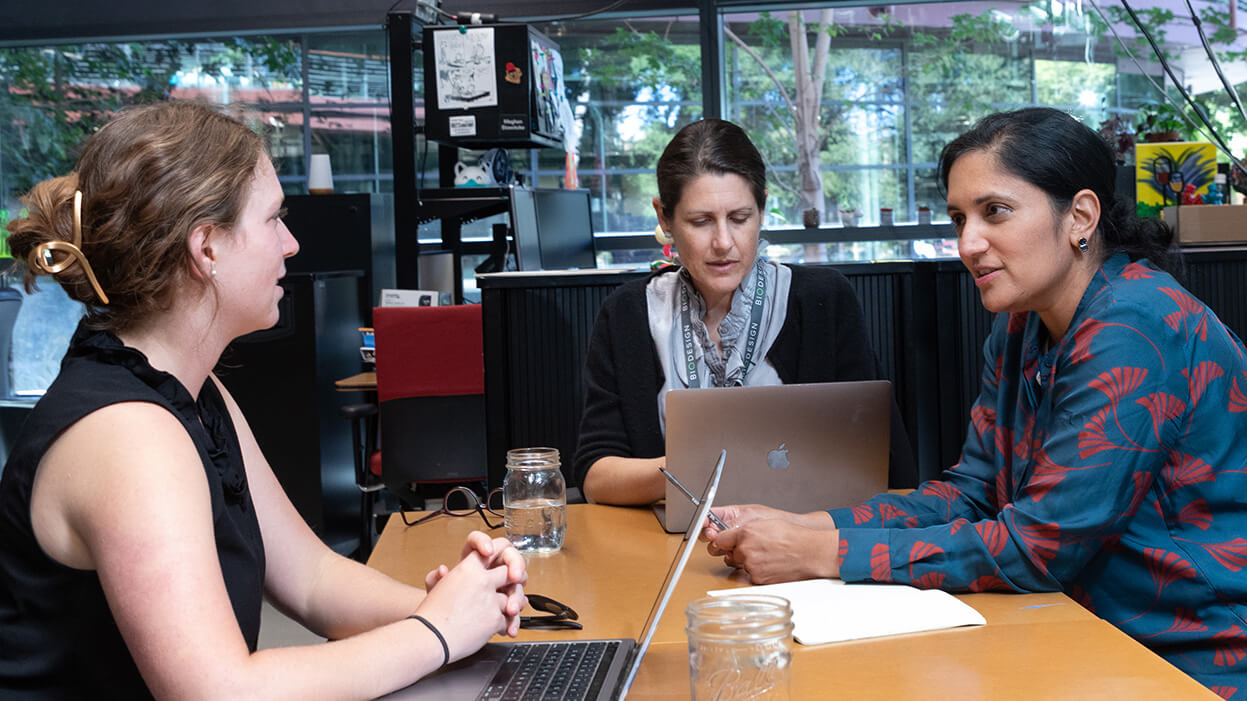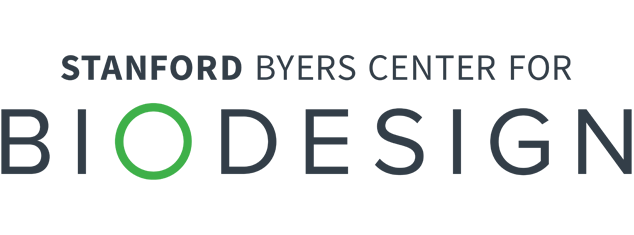Overview
For more than 20 years, Stanford Biodesign has been bringing the world’s most promising minds together to investigate, inspire, and innovate a healthier world for all. Our mission is to train aspiring innovators in a proven, repeatable process for identifying and screening important unmet health-related needs, inventing new solutions to address them, and developing implementation plans to advance those technologies into patient care.
Now, Stanford Biodesign has taken the next step in our mission to improve lives and advance health equity and outcomes by establishing the first and only health policy program specifically centered on the dynamic area of health technology innovation.
The need for this undertaking is clear: After investing years of effort and millions of dollars to develop a new technology, such as a life-saving medical device, biotherapeutic, or novel digital health platform, innovators must navigate an unpredictable landscape of complex, time consuming, and expensive requirements in order to advance their solutions into patient care. More importantly, the inefficiencies inherent in the current system result in delays that keep promising technologies from the people who so desperately need them.

Our Vision
Our vision is to produce data-driven research to help current and future policymakers better understand how health policies impact innovation. We also aspire to create new policies that accelerate the adoption of new technologies that increase health equity, enhance the patient and clinician experience, lower costs, and improve health outcomes.
In parallel, we will develop leaders steeped in intellectual property, regulatory, health economic value, healthcare payment, health equity, and federal policy and politics. We see a future where governing bodies collaborate with innovators to improve healthcare while securing a vibrant innovation ecosystem.
Our Three-Pillar Approach
Research

The Stanford Biodesign Policy Program publishes research that is nonpartisan, independent, and grounded in academic rigor. An advisory board of individuals from across the innovation ecosystem prioritizes research projects from among the most pressing policy matters at the intersection of healthcare and technology innovation, with the goal of delivering timely data to inform the current legislative and rule-making agenda.
Research methods are designed by our Policy Fellows, with guidance from the Director of Research. Project examples include economic modeling to quantify the effect of local, state, and federal policies on innovation and patient care, and identification of opportunities for new policies that could enhance how health technology innovation impacts the quadruple aim.
Education

Stanford Biodesign’s Policy Program is dedicated to applied policy education. Our offerings focus on real-world healthcare challenges, how existing and emerging health technologies can be leveraged to address them, and how relevant policy decisions will slow or accelerate the impact of those solutions.
Our first educational offering is the Policy Fellowship – the first and only applied health policy fellowship opportunity in the United States that is focused on health technology innovation.
The fellowship is a two-year, bicoastal experience intended to equip future policymakers to contribute to balanced, data-driven decisions that help realize the full potential of technology innovation in the health sector. In this context, health technologies include life sciences, biotech, medical devices, diagnostics, and digital health.
Engagement

Stanford Biodesign’s Policy Program leaders, advisors, and fellows take the national policy stage and convene events that bring influential thought leaders together. They share policy insights through publications, commentary, editorials, presentations, and policymaker engagement
The goal of our engagement efforts is to connect with policymakers directly, by bringing forward some of the toughest policy issues facing all healthcare stakeholders, including communities that have had little to no access to innovative solutions. We examine how innovators can better incorporate the quadruple aim – reducing costs and improving population health, patient experience, and healthcare team well-being – while increasing access and health equity.
Why Stanford Biodesign?
Our Policy Program taps into the knowledge and expertise of world-class faculty and researchers across Stanford University, including:
Stanford Department of Health Policy
Stanford School of Engineering
Stanford Graduate School of Business
Clinical Excellence Research Center
Freeman Spogli Institute for International Studies
Innovative Medicines Accelerator
Institute for Economic Policy Research
Get Involved
To learn more about how you can contribute to our vision, contact Stanford Biodesign’s executive director, Gordon Saul.
